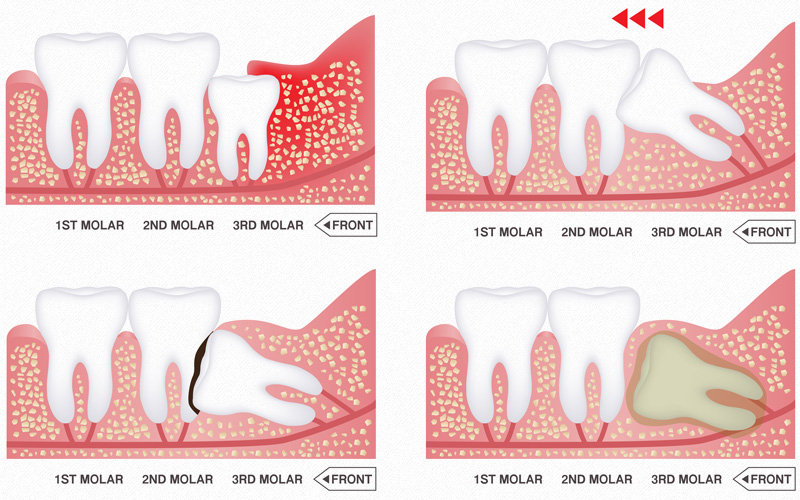When it comes to wisdom teeth there has always been two schools of thought. One argues that wisdom teeth should remain in the mouth until they start to cause problems at which stage then to be removed. The second argues that such calls are driven by economic considerations rather than what is best for the individual patient.
Research from the British Dental Journal suggest that dentists shouldn’t remove impacted wisdom teeth that are not giving any negative symptoms. They state that the research is based on the best available evidence and saves patients money by leaving the wisdom teeth that were never going to cause a problem in the first place.
In Australia, the number of people admitted to hospital for the removal of impacted wisdom teeth is seven times greater than in the UK. Research says that adapting the UK model would save the Australian healthcare system $420-513 million.
However Dr Rick Olive, President of the Australian Dental Association, argues the approach taken by the UK does not have enough research to back evidence-based guidelines for impacted wisdom teeth removal, and it should be up to the patients as well as what is advised by their dentists to decide whether or not they want to take the risk of keeping their impacted wisdom teeth. The decision to remove wisdom teeth is not always clear and you should talk to your dentist about the position and health of your wisdom teeth and what is best for your situation before making the decision to have them removed or not.
Risk factors to consider when keeping your wisdom teeth:
- As you get older there is a higher risk of complications which affects 5-21 percent of people
- Watchful monitoring over the years means extra radiation from dental x-rays
- Deferring issues such as inflammation of the gums or decay as the teeth slightly erupt
- Impacted wisdom teeth can cause cysts that can damage the roots and surrounding bone support
- If wisdom teeth don’t have enough room to come through, they may crowd or damage nearby teeth
Wisdom teeth may not need to be removed if they are:
- Healthy
- Grown through completely (fully erupted)
- Positioned correctly and biting with the opposing teeth
- Able to be cleaned thoroughly as part of daily hygiene practices
Wisdom teeth may need to be removed if you are experiencing changes in the area, such as:
- Pain
- Repeated infection
- Fluid-filled sacs (cysts)
- Damage to nearby teeth
- Gum disease
- Extensive tooth decay
If you are looking for the best dentist in Newcastle or Singleton NSW, call our friendly staff to book in for your next Dental appointment.
Information sourced from the Australian Dental Association and the ABC.
Written By Chantelle Affleck






Leave a Reply